building a CUNY DH Community since 2010
May 31: Archiving Catastrophe – Digital Humanities & Times of Disaster
On 25, May 2012 | In Meetings | By Charlie Edwards
Please join us on Thursday, May 31, 2012, when three leading Digital Humanists will take part in a panel discussion that addresses DH-related efforts to archive and preserve materials after catastrophic events.
Thursday, May 31, 2012, 6:30pm-8:30pm
Room 6496, CUNY Graduate Center
Archiving Catastrophe: Digital Humanities & Times of Disaster
Paul Millar (University of Canterbury, New Zealand), Tom Scheinfeldt (George Mason University), and Steve Brier (CUNY Graduate Center)
In the months since a 7.1 magnitude earthquake hit New Zealand’s Canterbury province in September 2010, the region has experienced over ten thousand aftershocks, 430 above magnitude 4.0. The most devastating aftershock, a 6.2 earthquake under the centre of Christchurch on 22 February 2011, had one of the highest peak ground acceleration rates ever recorded. This event claimed 185 lives, damaged 80% of the central city beyond repair, and forced the abandonment of 6,000 homes. It is the third costliest insurance event in history. Paul Millar, project leader of the CEISMIC Canterbury Earthquakes Digital Archive, will discuss the role of Digital Humanities in developing an international resource to preserve the digital record of the earthquakes’ impacts and the long-term process of recovery.
The Hurricane Digital Memory Bank, based at the Roy Rosenzweig Center for History and New Media (RRCHNM) at George Mason University, uses electronic media to collect, preserve, and present the stories and digital record of Hurricanes Katrina, Rita, and Wilma. The project contributes to the ongoing effort by historians and archivists to preserve the record of these storms by collecting first-hand accounts, on-scene images, blog postings, and podcasts. Tom Scheinfeldt, Managing Director of RRCHNM, will discuss both this project and, with CUNY Grad Center’s Steve Brier, the September 11 Digital Archive.
The September 11 Digital Archive uses electronic media to collect, preserve, and present the history of the September 11, 2001 attacks in New York, Virginia, and Pennsylvania and the public responses to them. Funded by a major grant from the Alfred P. Sloan Foundation and organized by the American Social History Project at the Graduate Center and at RRCHNM, the work of the Archive is not only to gather digital materials related to the attacks but also to assess how history is being recorded and preserved in the twenty-first century, and to develop free software tools to help historians do a better job of collecting, preserving, and writing history. To these ends the Archive has partnered with the Library of Congress, which in September 2003 accepted the Archive into its permanent collections – an event that both ensured the Archive’s long-term preservation and marked the Library’s first major digital acquisition.
All three projects seek to foster positive legacies of terrible events by allowing the people affected to tell their stories in their own words, which as part of the historical record will remain accessible to a wide audience for generations to come.
About Paul Millar:
Associate Professor Paul Millar is the Head of the Department of English, Cinema and Digital Humanities at the University of Canterbury, New Zealand. His research interests include New Zealand and Pacific literature, literary biography, digital textual scholarship and Australasian attitudes to China. In 2001 he co-founded the New Zealand Electronic Text Centre, and he is currently focused on adding functionality to the CEISMIC Canterbury Earthquakes federated digital archive.
About Tom Scheinfeldt:
Tom Scheinfeldt is Managing Director of the Roy Rosenzweig Center for History and New Media and Research Assistant Professor of History in the Department of History and Art History at George Mason University. He has lectured and written extensively on the history of popular science, the history of museums, history and new media, and the changing role of history in society, and has worked on traditional exhibitions and digital projects at the Colorado Historical Society, the Museum of the History of Science in Oxford, The Louisiana State Museum, the National Museum of American History, and the Library of Congress. In addition to managing general operations at RRCHNM, Scheinfeldt directs several of its online history projects, including Omeka, THATCamp, One Week | One Tool, the September 11 Digital Archive, the Hurricane Digital Memory Bank, the Papers of the War Department, 1784-1800, and Gulag: Many Days, Many Lives. He gave a memorable talk here at CUNY DHI in December 2010.
About Steve Brier:
Dr. Stephen Brier founded the Interactive Technology and Pedagogy Certificate Program at The Graduate Center in 2002 and serves as its Coordinator. He is a historian and a member of the doctoral faculty in Urban Education who has published widely in text, video, and various forms of multimedia on issues from U.S. history to the uses of interactive technology to improve teaching and learning. He was the founding director of The Graduate Center’s American Social History Project/Center for Media and Learning and was the executive producer of the award-winning “Who Built America?” multimedia curriculum, including textbooks, videos, and CD-ROMs. He has co-produced other award-winning websites, including “History Matters” and the “September 11 Digital Archive”. Brier, who previously served for eleven years as a senior administrator at The Graduate Center, is also the institution’s Senior Academic Technology Officer and the co-director of its New Media Lab.
May 8: Ramona Hernández and Anthony Stevens-Acevedo on the Spanish Paleography Digital Teaching and Learning Tool
On 03, May 2012 | In Meetings | By Charlie Edwards
Please join us on Tuesday, May 8, 2012 when the leaders of the Spanish Paleography Digital Teaching and Learning Tool project, funded by a Digital Humanities Start-Up Grant awarded by the NEH’s Office of Digital Humanities, will visit CUNY DHI to discuss their work to date. The project aims to teach users the paleographic skills required to decode early-modern Spanish manuscripts.
Tuesday, May 8, 2012, 6:30pm-8:30pm
Room 6496, CUNY Graduate Center
The Spanish Paleography Digital Teaching and Learning Tool
Ramona Hernández and Anthony Stevens-Acevedo, CUNY Dominican Studies Institute, City College
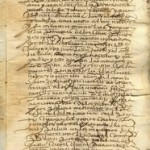
The Spanish Paleography Digital Teaching and Learning Tool aims to teach users how to decode and read the now abstruse three main handwriting styles in fashion in the early modern Spanish-language world. At the heart of the project is the creation of a website prototype where visitors will be able to consult, on the same screen, different samples of early-modern Spanish handwritings and line-by-line transcriptions into contemporary typeface. By a basic process of repeated visual comparison, the users learn how to decipher or decode the early-modern Spanish manuscripts – a learning that still today, for the most part, is restricted to very specialized university, archives and library settings. Allowing Internet users worldwide to access this learning at any time will hopefully entice more students and scholars in the Humanities to conduct research on the early-modern Spanish world, while democratizing access to the paleographic skills involved.
About Ramona Hernández:
Dr. Ramona Hernández is director of the Dominican Studies Institute of the City University of New York (CUNY) housed at The City College of New York, and is Professor of Sociology at City College and on the faculty of the Graduate Center, CUNY. She serves as a trustee of the International Institute of Advanced Studies in the Social Sciences (Instituto Global de Altos Estudios en Ciencias Sociales) of the Dominican Republic. Dr. Hernández earned the Ph.D. and M.Phil. in Sociology from the Graduate Center, CUNY; an M.A. in Latin American and Caribbean Studies from New York University; and the B.A. in Latin American History from Lehman College. She is also author of pioneering texts in the areas of migration, labor, and Dominican studies, including The Mobility of Workers Under Advanced Capitalism: Dominican Migration to the United States (named Outstanding Academic Title by Choice, 2002) and, as co-author, The Dominican Americans (1998). She is a trustee of the Sociological Initiatives Foundation.
About Anthony Stevens-Acevedo:
Anthony Stevens-Acevedo is assistant director and founding member of the Dominican Studies Institute of the City University of New York (CUNY DSI) at The City College of New York. He is a founding member of the Council of Dominican Educators, the Dominican Studies Association, and a Foreign Corresponding Member of the Dominican Academy of History (Dominican Republic). Stevens-Acevedo is a historian and focuses his research on the early colonial history of the Dominican Republic. He is the lead investigator in CUNY DSI’s Dominican colonial research projects. He has an M.A. in History from The City College of New York, CUNY, and a B.A. in History of the Americas from the University of Seville, Spain. He is currently a student in the History Program at the CUNY Graduate Center.
Dr. Hernández and Stevens-Acevedo have recently co-authored the chapter ‘Dominican Americans’ for ‘Multicultural America: An Encyclopedia of the Newest Americans,’ Ronald H. Baylor, editor, 2011. In 2011 they co-edited a special issue on Dominicans in the United States of “Camino Real,” the Journal of Instituto Franklin of the University of Alcalá, Spain, devoted to the Hispanic world in the United States.
May 1: Doug Reside (NYPL) on the Digital Creative Process of Jonathan Larson’s RENT
On 26, Apr 2012 | In Meetings | By Charlie Edwards
Please join us on Tuesday, May 1, 2012 when we will be delighted to host Doug Reside of the New York Public Library.
“How do you document real life?: Discovering the Digital Creative Process of Jonathan Larson’s RENT”
Doug Reside, New York Public Library
Tuesday, May 1, 2012, 6:30pm-8:30pm
Room 6496, CUNY Graduate Center
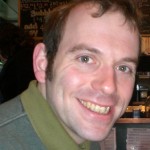
Doug Reside will discuss his attempts to reconstruct the creative process that produced the musical RENT by recovering and studying the digital drafts from Jonathan Larson’s original floppy disks. Reside will also offer some reflections on his newly minted position as Digital Curator of the Performing Arts at New York Public Library and will suggest strategies libraries may employ for dealing with the coming onslaught of born digital research collections.
About Doug Reside:
Doug Reside became the first Digital Curator of the Performing Arts at New York Public Library in February of 2011 after serving for four and a half years on the directorial staff of the Maryland Institute for Technology in the Humanities (MITH) at the University of Maryland in College Park. He has led numerous Digital Humanities projects and is currently editing the Musical of the Month blog at NYPL which makes available one musical theater libretto each month in various ebook formats.
Spring 2012 CUNY Digital Studies/Digital Humanities Seminar Schedule
On 26, Apr 2012 | In Meetings | By Charlie Edwards
We are delighted to announce (though belatedly!) our full schedule of events for Spring 2012, sponsored by the Center for the Humanities at the CUNY Graduate Center. We have three exciting presentations still to come in May and very much hope you will be able to join us.
All events are free and open to the public, and take place at the CUNY Graduate Center.
Friday, February 17, 4pm-6pm: “Debates in the Digital Humanities: A Panel Discussion”
Chair: Matthew K. Gold and Panelists: Stephen Brier, Charlie Edwards & David Greetham
Room 4406, CUNY Graduate Center
Sponsored by the Ph.D. Program in English
The semester began with a panel discussion kindly hosted by CUNY Graduate Center’s English PhD Program as part of the program’s “Friday Forum” series. The topic was Debates in the Digital Humanities, recently published by the University of Minnesota Press, and edited by our own Matthew K. Gold.
Monday, April 2, 6:30pm-8:30pm: “Risking Failure by Playing Around with Digital Pedagogy”
Katherine D. Harris (San José State University)
Room 6417, CUNY Graduate Center
For our second event of the semester, we welcomed CUNY alum Katherine D. Harris to speak on DH in the undergraduate classroom. Her talk focused on her experiences with a student-driven project that is run outside the institutional boundaries of a traditional English Department curriculum and the risks, failures, and disappointments that are inherent in adopting a collaborative and playful learning environment.
Tuesday, May 1, 6:30pm-8:30pm: “How do you document real life?: Discovering the Digital Creative Process of Jonathan Larson’s RENT”
Doug Reside, New York Public Library
Room 6496, CUNY Graduate Center
Doug Reside will discuss his attempts to reconstruct the creative process that produced the musical RENT by recovering and studying the digital drafts from Jonathan Larson’s original floppy disks. Reside will also offer some reflections on his newly minted position as Digital Curator of the Performing Arts at New York Public Library and will suggest strategies libraries may employ for dealing with the coming onslaught of born digital research collections.
Tuesday, May 8, 6:30pm-8:30pm: “Digital Paleography at CUNY: The Spanish Paleography Digital Teaching and Learning Tool”
Ramona Hernández and Anthony Stevens-Acevedo, CUNY Dominican Studies Institute, City College
Room 6496, CUNY Graduate Center
The leaders of the Spanish Paleography Digital Teaching and Learning Tool project, funded by a Digital Humanities Start-Up Grant awarded by the NEH’s Office of Digital Humanities, will join us to discuss their work to date. The project aims to teach users the paleographic skills required to decode early-modern Spanish manuscripts.
Thursday, May 31, 6:30pm-8:30pm: “Digital Humanities and Natural Disasters: Archiving Catastrophe”
Paul Millar (University of Canterbury, New Zealand), Tom Scheinfeldt (George Mason University), and Steve Brier (CUNY Graduate Center)
Room 6496, CUNY Graduate Center
Three leading Digital Humanists will join us in a panel discussion that addresses DH-related efforts to archive and preserve materials after catastrophic events. They will discuss the CEISMIC Canterbury Earthquakes Digital Archive, the Hurricane Digital Memory Bank, and the September 11 Digital Archive. All three projects seek not only to preserve the digital record of the events, but to foster positive legacies by allowing the people affected to tell their stories in their own words, which as part of the historical record will remain accessible to a wide audience for generations to come.
April 2: Katherine D. Harris on “Risking Failure by Playing Around with Digital Pedagogy”
On 29, Mar 2012 | In Meetings | By Charlie Edwards
Please join us on Monday, April 2, 6:30-8:30pm when we will be delighted to welcome CUNY alum Katherine D. Harris (San José State University) to speak on DH in the undergraduate classroom.
Details are below – we look forward to seeing you!
Time & Place: Monday April 2, 2012, 6:30-8:30pm, Room 6417, CUNY Graduate Center
Katherine D. Harris: “Risking Failure by Playing Around with Digital Pedagogy”
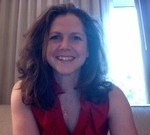 In Planned Obsolescence: Publishing, Technology and the Future of the Academy, Kathleen Fitzpatrick warns that academic futures need to be governed by expansive change: “We need to think less about completed products and more about text in process; less about individual authorship and more about collaboration; less about originality and more about remix; less about ownership and more about sharing” (83). If scholarly communication needs this type of revision, then I suggest so too does undergraduate pedagogy.
In Planned Obsolescence: Publishing, Technology and the Future of the Academy, Kathleen Fitzpatrick warns that academic futures need to be governed by expansive change: “We need to think less about completed products and more about text in process; less about individual authorship and more about collaboration; less about originality and more about remix; less about ownership and more about sharing” (83). If scholarly communication needs this type of revision, then I suggest so too does undergraduate pedagogy.
But, something happens when we start incorporating Digital Humanities and digital pedagogy into the undergraduate classroom, something that’s not embraced in academia: failure. Digital Humanities scholarship requires collaboration and playfulness – both risky endeavors in any Humanities classroom because of the need for assessment, structure, rules, and bounded learning. But, what happens when we modify some of the institutional structures and student learning outcomes to accommodate these two methods for learning and add into the curriculum a requirement for building something, anything, within the undergraduate classroom? The students collaborate, play around, and build materials for public scholarship, but we all risk failure – and then learn from it.
Using the Beard-Stair Project as an example, I would like to discuss a student-driven project that is run outside the institutional boundaries of a traditional English Department curriculum and the inherent risks, failures, and disappointments that are integral to this type of productive learning environment. Though the students collaborate, play around, and build materials for public scholarship, both I and the students have to accept some failures that are then assimilated into the project.
Katherine D. Harris (Tenured Assistant Professor, English and Comparative Literature, San José State University) specializes in Romantic-Era and 19th-century British literature, women’s authorship, the literary annual, 19th-century history print culture and history of the book, textuality, editorial theory, Digital Humanities, and pedagogy. Her work ranges from pedagogical articles on using digital tools in the classroom to traditional scholarship on a “popular” literary form in 19th-century England. Much of her work can be explored on her research blog: http://triproftri.wordpress.com.
Many thanks to The Center for the Humanities at The Graduate Center, CUNY for sponsoring this event.
December 12: DH and Graduate Education–Bethany Nowviskie (UVa) on “The Praxis Program at the Scholars’ Lab”
On 04, Dec 2011 | In Meetings | By Matthew K. Gold
Please join us for our final meeting of the semester on Monday, December 12, 6:30-8:30pm at the CUNY Graduate Center (Room 9204) for an exciting session on Digital Humanities and Graduate Education:
Bethany Nowviskie, “The Praxis Program at the Scholars’ Lab.” 
Praxis is a radical re-imagining of the methodological training offered to graduate students in the Scholars’ Lab at the University of Virginia Library. Alongside our well-established program for Grad Fellows in Digital Humanities, six new students are apprenticing with us to design and build Prism, a tool for “crowd-sourced” textual analysis, visualization, and interpretation. Our goal — as we test a hands-on curriculum live and in public — is to spark conversation about methodological training in the humanities. How should we prepare the next generation of knowledge workers for emerging faculty positions and alternative academic careers?
Readings/Links:
- http://praxis.scholarslab.org/
- http://nowviskie.org/2011/praxis-and-prism/
- http://www.uvasci.org/current-institute/ (see this year’s full report: http://www.uvasci.org/wp-content/uploads/2011/04/SCI9-report.pdf )
- http://mediacommons.futureofthebook.org/alt-ac/ (see especially Bethany’s introduction: “Two Tramps in Mud Time” http://mediacommons.futureofthebook.org/alt-ac/pieces/introduction-two-tramps-mud-time )
Bethany Nowviskie is director of digital research and scholarship at the University of Virginia Library Scholars’ Lab and associate director of the Scholarly Communication Institute. She is the editor of #Alt-Academy: Alternative Careers for Humanities Scholars.
Ben Vershbow on “NYPL Labs: Hacking the Library” [video]
On 28, Nov 2011 | In Meetings, Video | By Matthew K. Gold
The CUNY Digital Humanities Initiative is happy to release video from our November 14, 2011 event on Digital Humanities in the Library with Ben Vershbow of the New York Public Library. Ben’s talk was titled “NYPL Labs: Hacking the Library.” Please read our original announcement for more details on the talk. We thank Ben for an excellent session and a lively Q&A!
November 14: DH in the Library – Ben Vershbow (NYPL) on “NYPL Labs: Hacking the Library” (apologies for the focus issues at the start of the video; it gets better!)
Q&A Session
Digital Humanities in the Classroom – Mark Sample and Shannon Mattern [video]
On 19, Nov 2011 | In Video | By Matthew K. Gold
The CUNY Digital Humanities Initiative is pleased to release video from our October 18, 2011 event on Digital Humanities in the Classroom with Mark Sample and Shannon Mattern. Please read our original announcement for more details on their talks. We’re very grateful to them for sharing their work with us!
Mark Sample, “Building and Sharing When You’re Supposed to be Teaching”
Shannon Mattern, “Beyond the Seminar Paper: Setting New Standards for New Forms of Student Work”
November 14: DH in the Library–Ben Vershbow (NYPL) on “NYPL Labs: Hacking the Library”
On 08, Nov 2011 | In Meetings | By Matthew K. Gold
Please join us on Monday, November 14, 6:30-8:30pm at the CUNY Graduate Center (Room C201) for an exciting session on DH in the Library:
 Ben Vershbow (New York Public Library)
Ben Vershbow (New York Public Library)
“NYPL Labs: Hacking the Library”
The digital humanities and libraries have a deeply intertwined history. DH centers frequently are allied with or physically housed in library infrastructure, and many early digital humanities projects were in essence digital librarianship: organizing information online, building accessible digital archives, preparing and encoding texts for the world wide web. To this day, libraries look to digital humanists for new theories and methodologies in areas as diverse as digital preservation, linked open data, and geospatial information.
The New York Public Library is something of an outlier in this history. A public research institution, not beholden to a faculty or student body, its user base is an entire city, and also a vast array of thinking people around the world. It is an incubator for books, technologies, businesses and works of art. Thousands of scholars, writers, artists, students, workers and job seekers use its reading rooms and free internet access to pursue vectors of thought and creation. Its digital collections (still a tiny fraction of overall holdings) are accessed through web browsers around the world. Yet only recently has NYPL begun to actively engage with the digital humanities community and to adapt some of its ideas and methods to the immense task of redefining the public library for the information age.
Since 2007, the Library has been actively modernizing its digital infrastructure: embracing open source software and agile development processes, laying the foundations for a trusted digital repository, and working blogging and social media into its service models. NYPL Labs is a recently formed unit that is charged with building on these advances through bold experimentation with new technologies, development of advanced interfaces and research tools, and deep collaboration with curators and the public. This talk will cover current and future projects of the Labs, and through the lens of these first efforts, ponder what an urban public research library might look like a few decades down the road.
Ben Vershbow is a New York-based digital humanities geek and theater artist. For four years, he was editorial director at the Institute for the Future of the Book, working with Bob Stein. Currently, he is manager of NYPL Labs, a digital innovation unit at The New York Public Library, and runs a theater collective, Group Theory.
Oct 18: DH in the Classroom: Shannon Mattern & Mark Sample
On 13, Oct 2011 | In Meetings | By Charlie Edwards
Please join us on Tuesday October 18, 2011, when we are excited to welcome two innovative practitioners of “Digital Humanities in the Classroom” – The New School’s Shannon Mattern, and Mark Sample, of George Mason University.
Details are below; we look forward to seeing you there!
Time & Place: Tuesday October 18, 2011, 6:30-8:30pm, Room 6496, CUNY Graduate Center
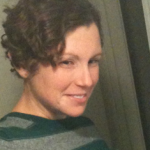 Shannon Mattern, “Beyond the Seminar Paper: Setting New Standards for New Forms of Student Work”
Shannon Mattern, “Beyond the Seminar Paper: Setting New Standards for New Forms of Student Work”
By exploring how new technologies might function as teaching tools or platforms on which students can demonstrate their learning, we expand the means and ends of education. With this increasing openness of pedagogical forms comes the responsibility to justify our choices and develop new forms of criticism and modes of assessment. Using several of my own courses as examples, I’ll address the challenges and potential benefits of holding students, and ourselves, accountable for the choices we make in our classrooms and advising relationships. I’ll focus on the value of (1) student documentation of their learning process, and in particular (2) students’ justification of their chosen methods and modes of presentation; (3) collaborative development of criteria for evaluation; and (4) connecting our work in the classroom to larger public problems and public institutions.
Suggested readings:
- Shannon Mattern, “Trying to Wrap My Head Around the Digital Humanities, Part 2” Words in Space (June 23, 2010)
- Shannon Mattern, “Evaluating Multimodal Student Work” Words in Space (August 11, 2010)
- Steve Anderson, “Regeneration: Multimedia Genres and Emerging Scholarship” Institute for Multimedia Literacy (June 29, 2008)
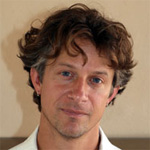 Mark Sample, “Building and Sharing When You’re Supposed to be Teaching”
Mark Sample, “Building and Sharing When You’re Supposed to be Teaching”
My pedagogy can increasingly be summed up in five words: “Make things. And share them.” I will talk briefly about my move toward assignments and projects in the undergraduate humanities classroom that emphasize making—as opposed to simply writing. I will also address the sharing aspect of these projects, which I see as a critical intervention into the enclosured experience most students have in higher education.
Suggested readings:
- “Student Contracts for Digital Projects” by Jeffrey McClurken
- “Integrating a Digital Project Into a Class: Deciding on a Project” by Amy Cavender
- “Using a Graphic Illustrator in Higher Education: Comic Life” by Billie Hara
Shannon Mattern is an Assistant Professor of Media Studies and Film at The New School and was, from 2006 to 2009, director of the Masters in Media Studies program. Her research and teaching focus on relationships among media, architectural, and urban space. Her book, The New Downtown Library, was supported by the Graham and Mellon foundations and published by the University of Minnesota Press in 2007. She has also published in several edited volumes and in journals including Space and Culture, Public Culture, and the Journal of Architectural Education. Her classes, which regularly involve the use of digital media, have resulted in the creation of exhibitions and installations and, in Fall 2010, thanks to the support of an Innovations in Education grant from The New School, a prototype of an open-source mapping tool for scholarly urban research. She is a recipient of The New School’s 2011 Distinguished University Teaching Award.
Mark Sample is an Assistant Professor in the Department of English at George Mason University, where is he also an affiliated faculty member with GMU’s undergraduate Honors College, its Cultural Studies doctoral program, and the Center for History and New Media. His research focuses on contemporary fiction, electronic literature, and videogames. His examination of the representation of torture in videogames was recently published in Game Studies, and he is working on a collaboratively written book about the Commodore 64 home computer. Mark has work in Hacking the Academy, a crowdsourced scholarly book forthcoming in print by the digitalculturebooks imprint of the University of Michigan Press. Mark has recently remixed the entire text of Hacking the Academy as Hacking the Accident. Mark is also an outspoken advocate of open source pedagogy and open source research. In recognition of his commitment to innovation in teaching, he was the recipient of George Mason’s 2010 Teaching Excellence Award. He is a regular contributor to ProfHacker, a feature at the Chronicle for Higher Education that focuses on pedagogy and scholarly productivity, and he also writes for Play the Past, a collaboratively edited scholarly blog that explores the intersection of cultural heritage and games.
This event is co-sponsored by The CUNY Digital Humanities Initiative and the CUNY Digital Studies Group, in partnership with The Center for the Humanities at The Graduate Center, CUNY.

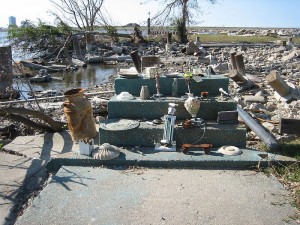
 Welcome to the blog of the CUNY DHI, an effort to build momentum and community around Digital Humanities practitioners at CUNY. We hope you'll join us at our upcoming events and that you'll follow this blog to hear about the latest news in the field.
Welcome to the blog of the CUNY DHI, an effort to build momentum and community around Digital Humanities practitioners at CUNY. We hope you'll join us at our upcoming events and that you'll follow this blog to hear about the latest news in the field.



Recent Comments